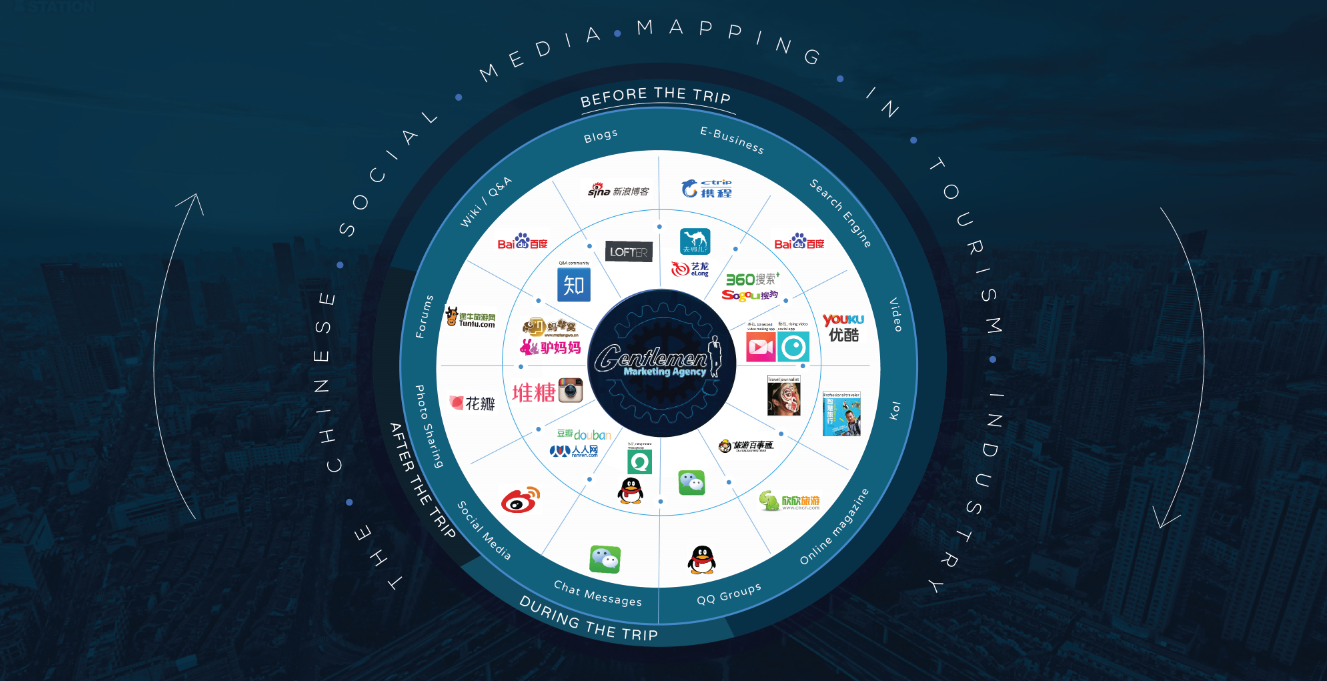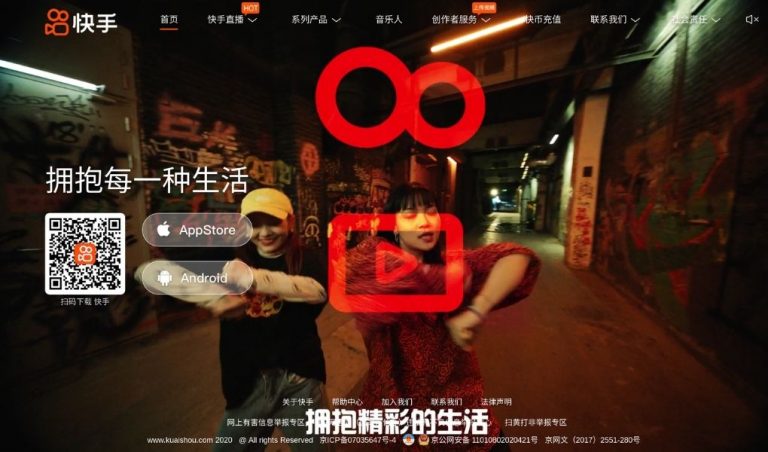What digital media do Chinese tourists use?

Chinese social networks are undoubtedly the right channel; it starts to be a well-known fact given how much we have all heard about the Chinese tourist wave. According to data released by the United Nation, We are talking about 100 million Chinese tourists who have spent $129 billion worldwide.
China : a digital Country
This is a big cake indeed with still a large potential given that it is expected to have grown by 20% by 2015 to a whopping 120 million Chinese tourists. With such an appealing market many may wonder how to attract their attention. Before delving deeper into the Chinese tourist’s behavioral pattern you need to know a few more figures:
Cost-Effective Agency
KPI and Results focused. We are the most visible Marketing Agency for China. Not because of huge spending but because of our SMART Strategies. Let us help you with: E-Commerce, Search Engine Optimization, Advertising, Weibo, WeChat, WeChat Store & PR.
Chinese are very much hyper-connected; they are 634 million users spending an average of 25 hours per week on the internet. They spend most of this time watching multimedia content as well as being very active on the social networks as a pastime or as a way to make decisions based on other users’ reviews.
Understanding the digital landscape for attracting Chinese tourists
So, digital media are a way to attract Chinese tourists to your country, your resort, your hotel for instance. In this article, we will discuss the different digital media they use to choose their destination, plan and finally share their experience
Source Chinesetouristagency.com
Baidu Baike
Baidu baike is a collaborative encyclopedia, akin to the well-known Wikipedia with only a few differences:
It is supported by the internet behemoth Baidu as part of the three main services, Baidu Zhidao and Baidu Tieba to make a fully-fledged search tool complementing Baidu Search Engine. Articles are written by registered users and reviewed by behind curtain administrators before their release.
How does it help Chinese tourists?
There, Chinese tourists will find general information about a destination they would like to go to.
The picture below shows that you can indeed have access to a huge range of information regarding pretty much anything about the country, just like what you could find in Wikipedia.
Here is the Baidu Baike page on Buthan

Baidu Zhidao
Baidu Zhidao, one of the three services of Baidu is the Chinese equivalent of Yahoo Q&A. Chinese netizens go there to ask and answer a wide range of questions about pretty much anything as long as it is not content that is censored by the government.
How does it work with Chinese holiday makers?
Once Chinese tourists have a rough idea about where they want to go they refine their knowledge of the destinations with Baidu Zhidao. They can ask questions about the most interesting places, where they can really have fun or what things should they pay attention to.
For instance, in the picture below you can find a Chinese tourist asking about the places he should visit in India and were to have the most fun :

Once the information has been found on those services, the Chinese tourist will have a better accurate idea of where he would like to go. Next, he will need to have accurate information about travel through the eyes of bloggers; Even though blogs are not as popular as other means of communication about your destination or resort they should not be neglected.
There is a multitude of blogs out there, so obviously I won’t list them all but I will give you an example that is somewhat more important than others.
Sina Blog (新浪博客)

Part of the set of platforms created by the Sina group, owner of one of the most successful social media in China, Sina Weibo(新浪微博) and Sina News (新浪新闻), you can find a wide range of information about a lot of topics including traveling or going abroad to study for instance. See below:
Users can share and discuss the content of the blog, leaving reviews about the content as well. It is a very important part of the activity, should you decide to promote (and you should!) your destination or your tourism agency on such media. This kind of platform can be very useful to increase your e-reputation and visibility with good content.
E tourism business
This is where 70% of the Chinese holidaymakers go to book their holidays, e-tourism agencies!
Ctrip
Now we have arrived at the booking part, starting with the leader in Chinese e-tourism, C-Trip, started in 1999, the company is not only present on its domestic market but worldwide as well.
According to 2014 data, CTRIP on its own hold about half the market, way ahead of its next competitor, Elong with a 54% market share. The e-tourism agency is reinforcing its presence and offers with hotel groups. Its strategy relies on vouchers, premium deals, and Ctrip point that can allow Ctrip subscribers to have cheaper flights or travels. Lately, after buyouts or partnerships with several hotel groups, it is obvious that the market leader wants to reinforce its presence in the Hotel booking area.

E-long
Second, in the Chinese tourism market, Elong holds about 20% market share according to the latest 2014 data. Marketing obliges, if you’re not the leader in a market, you must specialize in one single area and be the best there. That’s what elong did by focusing more on hotel booking, especially in China more than on foreign markets.

Search engine
Once the destination is clear the Chinese tourist will go check things out on a search engine to know more about the hotel and what companies are the best, the most famous. From a tourism industry point of view, you need to have a very good brand awareness to attract more customers.
Here the things are quite clear when it comes to who the main players are.
The first, with more than 60% market share is Baidu.

The second is the challenger 360 Search

A valuable point to understand is that the Chinese do not do queries as some other countries do like the US or European countries where if you’re not on the first page you lose 85% of the potential traffic. Chinese tend to make longer queries and use several keywords until they find the right result in the SERP (Search Engine Result Page).
Video Sharing
Chinese in general love watching videos. For tourism purposes, they like to do so in order to have a feel of the destinations they have chosen or are about to select for their trip.
Here are the platforms:
Youku
Started In 2003, it is very resembling its western counterpart, Youtube, users can watch, share and rate videos.

Here you can see the travel category of the website sponsored by travel agencies and travel industry-related websites.
Meipai (美拍)
Chinese love sharing multimedia content, especially if it shows the perfect scenery. The problem, you cannot obtain the perfect video or photo naturally. This is where Meipai comes in with its video editing features that bring users into the semi-professional video editing world. They can add music, edit the video. Once this is done they can share it with the other users of the Meipai community and have their reactions. Those user-made videos are at most 1minute long which makes them perfect for watching on mobile phones where you often don’t have that much memory. Besides they can be watched anywhere.
With the rise of m-marketing, it is a very useful video-sharing tool.

From a Chinese tourism perspective, this is very useful for the Chinese to have a feel of the destination from a user-to-user perspective.
KOL : a sure way to influence Chinese tourists
KOL or key opinion leaders are people not necessarily well-known in real life but who have a real influence in the digital world and are aware of it.
For instance “I am the Queen of travels” KOL and her 735000 followers. Should she go to your travel agency, hotel, or services, it would attract attention to your company.

Chinese people in general trust other people, especially if they are experts in their domain; here this person is seen as a real expert in her field. She posts pictures about her travels, the food she ate, and her travel experience.
Online Magazines
As a complement, they may also go to see online magazines to have further advice from travel professionals. Here are a few of them
Happy Travel欣欣旅游

- On this kind of magazines they will find tours and advices on where to go and what to visit. These magazines continuously provide new content and keep up to date information about everything related to travel. Online magazines such as this one are twice as effective as the traditional press. To increase your notoriety you must be present there, with online journalist talking about you to be vouched by experts of the field in China. In this country where the customers are the most distrustful in the world it is everything. View also this article on Chairman mingo
Social networks in China
Social networks groups.
Social network groups will allow Chinese tourists to see their friend’s experiences and have some feedback about the trip they have already planned if they know some people who have been there already.
QQ Space or Wechat moments, belonging to QQ and Wechat, both belonging to the Tencent group are a good examples of this.

They receive information from their friends or people they are connected with, people they trust.
During the trip
Instant messaging apps


Chinese tourists love to share their travel experience in real-time through an instant messaging app like Wechat and QQ mentioned above. They will also go on QQ space or Wechat moment but to tell their story this time that in turn can be useful to other users. This section of the Chinese tourist travel experience is one you must be careful about since if they have a good experience they will share that very quickly with the people they are most connected to but also tell if they have had a bad experience In real-time. The only solution here is to have a very reactive staff team to solve the problem with the customer and also a team of digital marketers behind the scene equally as responsive to camouflage any bad comments and bad reviews by highlighting the good of other customers that were satisfied.
During and after the trip
Microblogging platform

Chinese tourists will also post microblogs, very similar to tweets about their trip during and at the end of their trip to spread the news about it and post content. This attracts people who may want to know more about their experience.
After the trip
Picture sharing platforms
Chinese tourists like to share pictures and show off how beautiful and wonderful their journey was.
Instagram & Meipai
The well-known platform Instagram, very similar to Mepai described above but only for pictures, with its worldwide communities Chinese don’t have to stay local about their traveling experience sharing!

Travel forums
The end is similar to the beginning with specialized forums about travel. This is also where travelers and experts will review avenues, tours, destinations as well as share their best insiders’ tips. A good reputation allied with a comment management team works wonder again here because of the trust places on other users’ reviews. These types of platforms provide travel services as well as guided tourists.
Tuniu

Conclusion
And so the cycle ends. This is how things work when the Chinese decide to go abroad for holidays, everything must be planned and they always want the best deals and promotions. With the rise of the average income per capita, these factors and channels have to be taken into consideration before starting any marketing strategy.
More information about :








Good Day Seoagencychina
We are interested in SEO marketing for our 3 websites based in Boracay, Philippines. The island is already top in Chinese tourist arrival and we are certain it will still grow in the coming years.
How can you help us with this?
Best Regards,
Ernie
Chief Operating Officer
Boracay Entertainment Resources Inc.